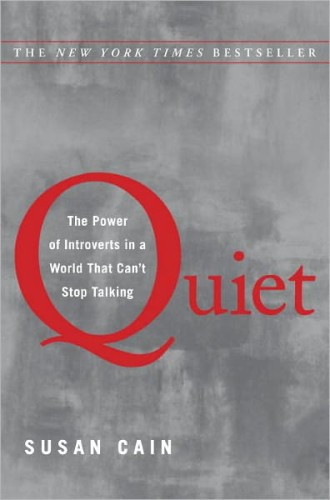Introverts unite
In an astonishingly popular essay in the Atlantic a few years ago, Jonathan Rauch envisioned the dawning of an “introverts’ rights movement.” He mused, “We can only dream that someday, when our condition is more widely understood, when perhaps an introverts’ rights movement has blossomed and borne fruit, it will not be impolite to say ‘I’m an introvert. You are a wonderful person and I like you. But now please shush.’”
If Rauch’s brief article provided the manifesto for the movement as well as the slogan (“Please shush”), Susan Cain’s book Quiet could be used as the intellectual argument behind it. She contends that introverts are both misunderstood and underappreciated. Cain finds that infuriating. If she were Howard Beale in the movie Network, she might be shouting out her window, “I’m quiet as hell, and I’m not going to take it anymore”—except, as an introvert, she probably would not be shouting. The assertive subtitle of Quiet captures both the message and the tone of the book: The Power of Introverts in a World That Can’t Stop Talking.
Carl Jung popularized the terms introvert and extravert in his landmark 1921 book Psychological Types. The widely used Myers-Briggs personality test draws largely on that work, including the key duality of introvert and extravert. According to Jung, a human being’s tendency toward introversion or extraversion is the central building block of personality. Generally speaking, introverts are drawn to the inner world of thought and feeling. Extraverts are more drawn to the external world of action and interaction.





